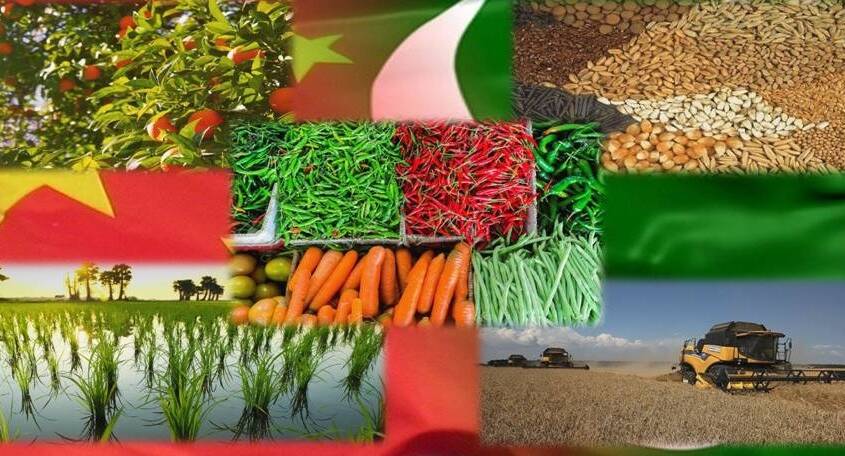Pakistan to realize its agricultural potential through CPEC

ISLAMABAD: The Parliamentary Committee on China-Pakistan Economic Corridor (CPEC) on Wednesday called for strengthening the agriculture sector under the CPEC framework by observing that this diminishing sector has the potential source of employment for the people of the country.
The committee, chaired by Sher Ali Arbab, emphasised that Pakistan needs not to rely on China for technological transfer rather boost its capacity building. The country needs to enhance the areas of research to encourage indigenous technological innovations and modernise its agriculture sector, the meeting noted.
The committee observed that the research which is being generated by Pakistan Agricultural Research Council (PARC) to enhance agricultural production needs to be collaborated with Ministry of Commerce and other concerned to check economic viability of the agricultural commodities so that Pakistan’s vast agriculture potential could be utilised in enhancing agricultural exports.
Moreover, it was noted that China imports meat worth $48 billion from other countries. Since Pakistan has huge potential in the livestock and other food processing items, there is an exigency of meeting international food standards and initiating negotiations with China to remove anomalies and enhance local exports in these areas. The committee observed that these steps would allow Pakistan’s engagement with China to become more prolific and constructive under the CPEC framework.
The committee heard a briefing by Secretary, Ministry of National Food Security and Research Ghufran Memon and PARC Chairman Dr Muhammad Azeem Khan concerning the council and other projects in the agriculture sector. Sharing 10-year development targets under CPEC, Dr Khan briefed the committee that PARC’s aim is to make Pakistan a cotton exporting country rather importing cotton from other countries thereby saving foreign exchange worth $1.5bn.
Besides renovation of existing orchards, introduction of new varieties, reducing post-harvest losses, improving value chain and development of rural industries are major proposed interventions.
The committee members also paid visit to the exhibition at National Agriculture Research Centre where a comprehensive briefing was given to the committee on agro-tech company, aquaculture and fisheries programme, honeybee research institute, alternative energy use in agriculture and vegetable and fruit crops cultivation processes.
The committee members remarked that farmers were the major stakeholders of agriculture sector, and it is a matter of concern that seeds of various crops were not being provided to farmers on time.
In this regard, the committee suggested that bottlenecks need to be removed to ensure fair and timely distribution of crops seeds to the farmers so that by resolving farmers’ issues agricultural productivity could be enhanced.
Speaking on the occasion, Arbab said that selected groups of farmers from all provinces and regions would be invited to convey their concerns to PARC so that their problems could be resolved.
The committee was also of the view that the vast potential of agriculture sector if exploited prudently and effectively will vehemently alter the socio-economic landscape of our country, bring lasting economic benefits and strengthen the process of industrialisation under CPEC framework.
Source: Dawn


